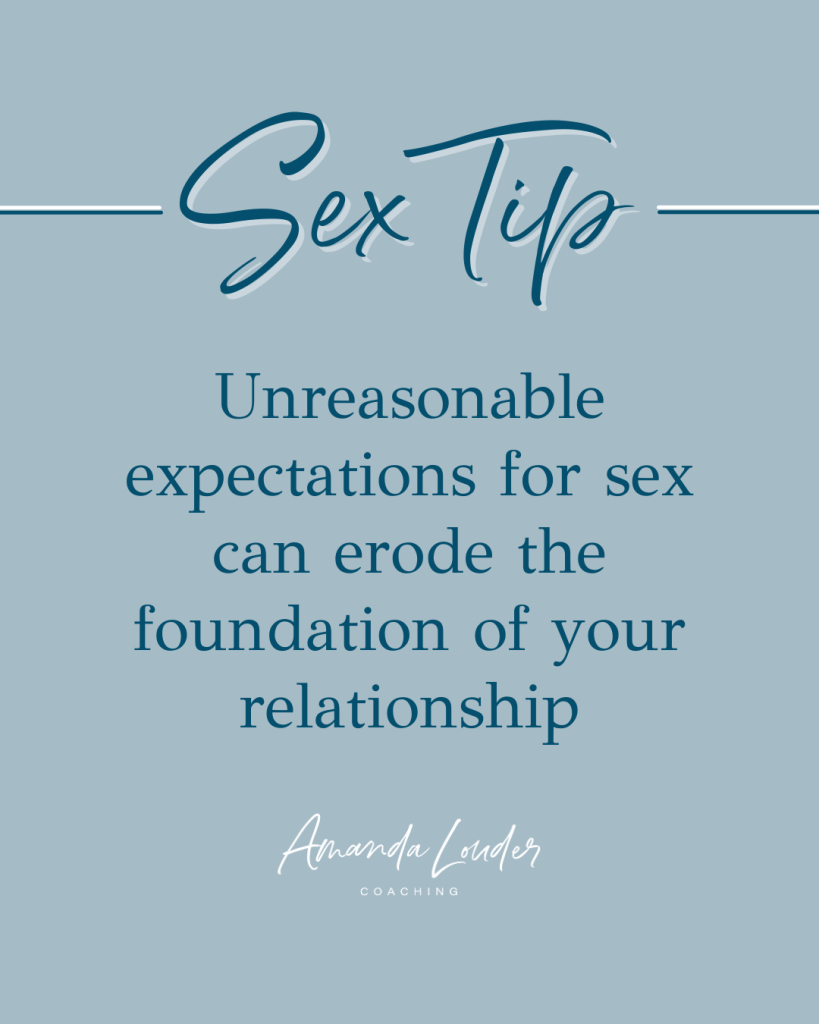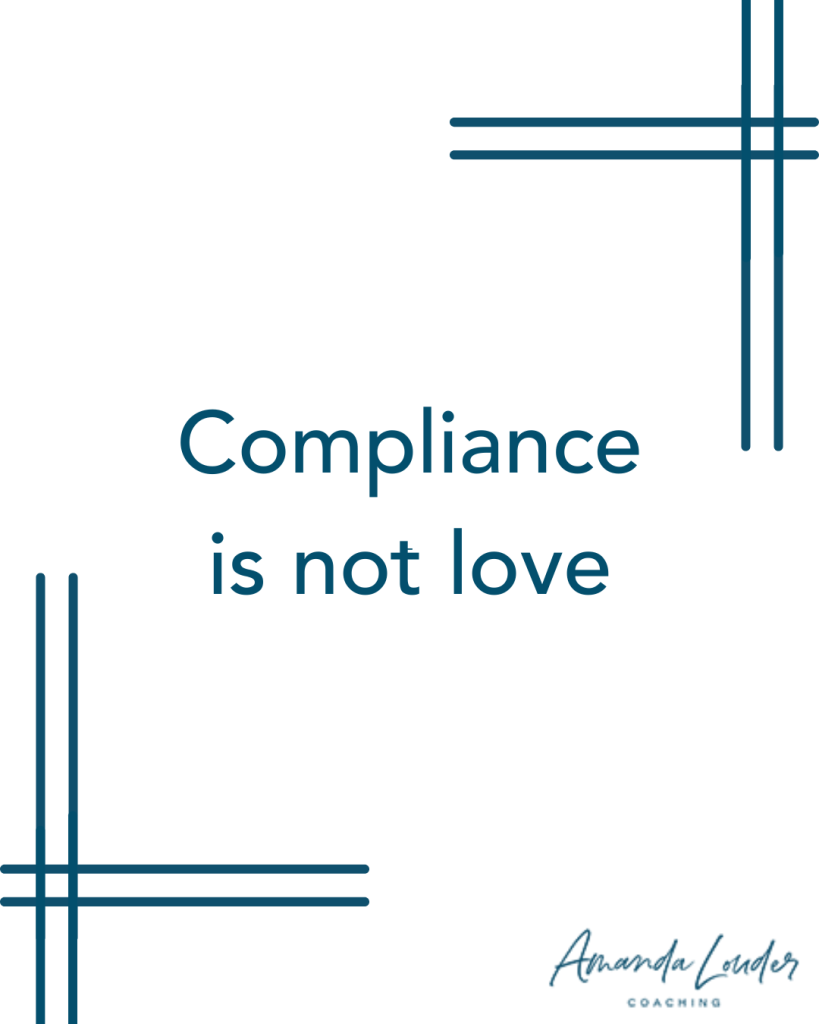
“If you love me…” I’ve been seeing this phrase thrown around quite a lot lately. My clients often tell me that their spouse has said, “If you love me, you’d have more sex with me.” I recently saw in a Facebook group that someone said to their spouse, “If you love me, you’ll stop watching porn.” At first glance, this phrase doesn’t seem like that big of a deal but it’s actually quite damaging in a relationship. In fact, a therapist called it “the divorce formula.” In this episode, we’re going to explore how this phrase can impact your relationship and what you can do about it.
Show Notes:
Follow Amanda on Facebook and Instagram.
Join Amanda’s Private Facebook Group.
Show Summary:
Today we’re diving into an important topic: using the phrase “if you love me…” in relationships. I’ve been seeing this phrase thrown around quite a bit lately. My clients often tell me that their spouse has said “If you love me, you’d have more sex with me.” I recently saw in a Facebook group that someone said to their spouse “If you love me, you’ll stop watching porn.” On a podcast I was listening to, a therapist called this phrase “the divorce formula.” Now, this phrase might seem harmless at first glance, but it can actually be quite damaging when used in the context of marriage and intimacy. Let’s explore how this phrase can impact your relationship and what you can do about it.
Let’s start by clarifying that your ability or inability to do something your spouse asks for does not necessarily reflect how much you love them. The inability to have spontaneous desire. The inability to have more sex at this point in the relationship. The inability to stop watching porn cold turkey. Relationships are complex, and there can be many reasons for not fulfilling a request. Perhaps you have a different perspective on the situation, you might be dealing with your own personal challenges, or you might have your own needs and boundaries that are impacted by the request.
A lack of compliance with a request does not automatically mean that you don’t love your partner. Love is not measured by how often or consistently you say “yes” to every request made. Instead, it can be shown through mutual respect, trust, and open communication. When a spouse takes a request as an indicator of love, it places unnecessary pressure on the recipient and can lead to resentment.
Sometimes, we simply may not be capable of doing what our spouse wants. Maybe it’s a physical limitation, emotional readiness, or moral disagreement. This can create a power imbalance if the spouse who is requesting the action sees the other partner’s limitations as a failure to love or support them.
It’s important to communicate your limitations with your spouse in a kind and compassionate manner. Seek to understand each other’s perspectives and work together to find a collaborative solution that respects both of you. If you find that you cannot meet your spouse’s request for a valid reason, reassurance that your love remains steady despite your inability to comply can help maintain trust and intimacy.
So why is using the phrase “If you love me…” unreasonable? When someone uses the phrase “if you love me…” as a means of persuasion, it can lead to unreasonable expectations. It places an undue burden on the recipient to prove their love through compliance. This can create a transactional view of love and affection in the relationship, rather than a sense of genuine connection and partnership.
Also, using the phrase “if you love me…” is manipulative, which is never good in a relationship. This tactic often forces them into a position where they feel they must comply to prove their love or avoid negative repercussions in the relationship. The recipient may comply out of fear of losing the relationship or disappointing their partner, rather than genuinely wanting to fulfill the request. This can lead to a cycle of compliance and resentment, damaging the foundation of the relationship over time.
Over time, unreasonable expectations can erode the foundation of the relationship. Instead of fostering trust and intimacy, this thinking can lead to distrust and dissatisfaction. Relationships thrive when both partners feel their boundaries and limits are respected.
Using the phrase “if you love me…” can also be rooted in entitlement. Entitlement is the belief that one deserves special treatment or privileges without regard for the thoughts or feelings of others. In relationships, it can manifest as expecting your partner to meet all your needs or desires without considering their needs and desires, their ability, and their readiness. This mindset can be harmful because it disregards the partner’s individuality and autonomy. When one partner feels entitled to have all their wishes fulfilled, it can diminish the other’s sense of agency and lead to resentment or imbalance in the relationship. Mutual respect and understanding are key to a healthy and sustainable relationship.
So what should you do if your spouse doesn’t like some of your behaviors? If and when your spouse expresses dislike for certain behaviors, it’s essential to listen and seek to understand their concerns. Have an open and honest conversation about why those behaviors bother them and explore any underlying issues together. This isn’t about automatically changing to please your spouse, but about finding a balance that respects both of your needs and boundaries. Work together to identify potential compromises or alternative solutions. This approach allows both partners to feel heard and respected, fostering a stronger, healthier connection. Being willing to engage in these conversations can strengthen your relationship and build trust.
For example, if you would like your spouse to work on their desire for sex in the relationship, instead of saying “if you love me, you will have more sex with me” sitting down and expressing why it’s important to you, and be curious, open-hearted, and understanding about why it is hard for them. Let them know that you want to work towards finding ways to help them be successful if they want this for themselves. And if they don’t want it, continue to show up how you want in the relationship. Be a good partner despite their actions because that is YOUR best self and you can respect yourself even if you are struggling.
If your spouse asks you to prove your love by doing something that makes you uncomfortable, it’s crucial to address the situation openly. Let them know your concerns and why you’re not comfortable with their request. A healthy relationship is built on mutual respect and understanding, not manipulation or pressure.
It’s important to establish and maintain boundaries in your relationship, even if it means saying “no” to a request that feels uncomfortable or goes against your values. This can be challenging, but it’s necessary for preserving your own emotional and physical well-being. Honesty and transparency can help your partner understand your perspective and may lead to a stronger, more trusting relationship.
While we may want to show our partner that we love them in the ways that they want, this isn’t easy. God said “If you love me, keep my commandments.” And we know how hard that is, even though we truly do love God. In a marriage and sexual relationship, it’s important to give our spouse grace and compassion. I love to be generous in my thinking with people that they are always doing their best, even if their best isn’t very good. There are always reasons why they are doing what they are doing, even though some are maladaptive. This is why it is so crucial to always be working on improving ourselves, our ways of thinking, and our ways of being in the world. We can’t control others, but we can work to be intentional about showing up as our best selves in the relationship despite what is going on around us.





